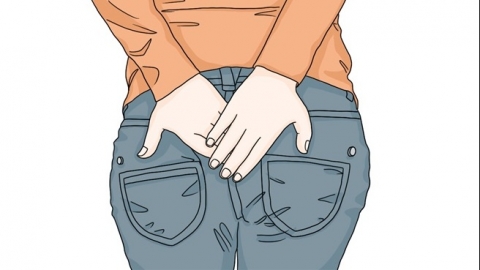What should I do if I have bleeding during bowel movements due to internal hemorrhoids?
Generally, the treatment methods for bleeding caused by internal hemorrhoids include conservative management, local medication, oral medication, physical therapy, and surgical treatment. The details are as follows:
1. Conservative Management
Patients should maintain cleanliness around the anus and wash the area with warm water after each bowel movement to prevent residual feces from irritating the hemorrhoidal tissue and worsening bleeding. Daily dietary adjustments are recommended, including increased intake of fiber-rich foods such as vegetables, fruits, and whole grains, along with higher fluid consumption, to keep stools soft and bowel movements smooth. This helps reduce friction and pressure on hemorrhoids during defecation. Additionally, prolonged sitting or standing should be avoided; regular physical activity is encouraged to improve blood circulation in the anal region.
2. Local Medication
Topical treatments act directly on the hemorrhoids to relieve bleeding and discomfort. Under medical guidance, patients may use medications such as compound alginates suppositories, Ma Yinglong Musk Hemorrhoid Ointment, or Guan Tai suppositories. These agents help protect the mucosa of hemorrhoids, reduce inflammation, promote mucosal healing, and thereby decrease bleeding.

3. Oral Medication
Oral medications can systemically support the improvement of bleeding from internal hemorrhoids. As directed by a physician, patients may take drugs such as Daflon (diosmin), Micronized Purified Flavonoid Fraction (MPFF), or Yunnan Baiyao capsules. Daflon and MPFF enhance venous tone and improve blood circulation in the anal region, reducing congestion of hemorrhoidal tissues. Yunnan Baiyao capsules have hemostatic and anti-swelling effects that help control bleeding symptoms.
4. Physical Therapy
Physical therapies aim to shrink hemorrhoids and stop bleeding through specific techniques. Commonly used methods include sclerotherapy and infrared coagulation. Sclerotherapy involves injecting a sclerosing agent into the hemorrhoid to induce fibrosis and shrinkage, thus achieving hemostasis. Infrared coagulation uses infrared energy to coagulate blood vessels within the hemorrhoid, reducing bleeding and promoting tissue regression.
5. Surgical Treatment
If bleeding from internal hemorrhoids is severe and unresponsive to conservative treatments, surgery may be considered. Common surgical procedures include stapled hemorrhoidopexy and hemorrhoidectomy. Stapled hemorrhoidopexy removes the mucosal tissue above the hemorrhoids and lifts the prolapsed hemorrhoidal tissue, improving blood flow in the anal area and reducing bleeding. Hemorrhoidectomy involves direct removal of the hemorrhoidal tissue, providing a definitive solution to bleeding.
In addition, during treatment, patients should follow medical advice closely and undergo regular follow-up visits. If abnormal conditions such as heavy or persistent bleeding occur, prompt medical attention is necessary to adjust the treatment plan.






